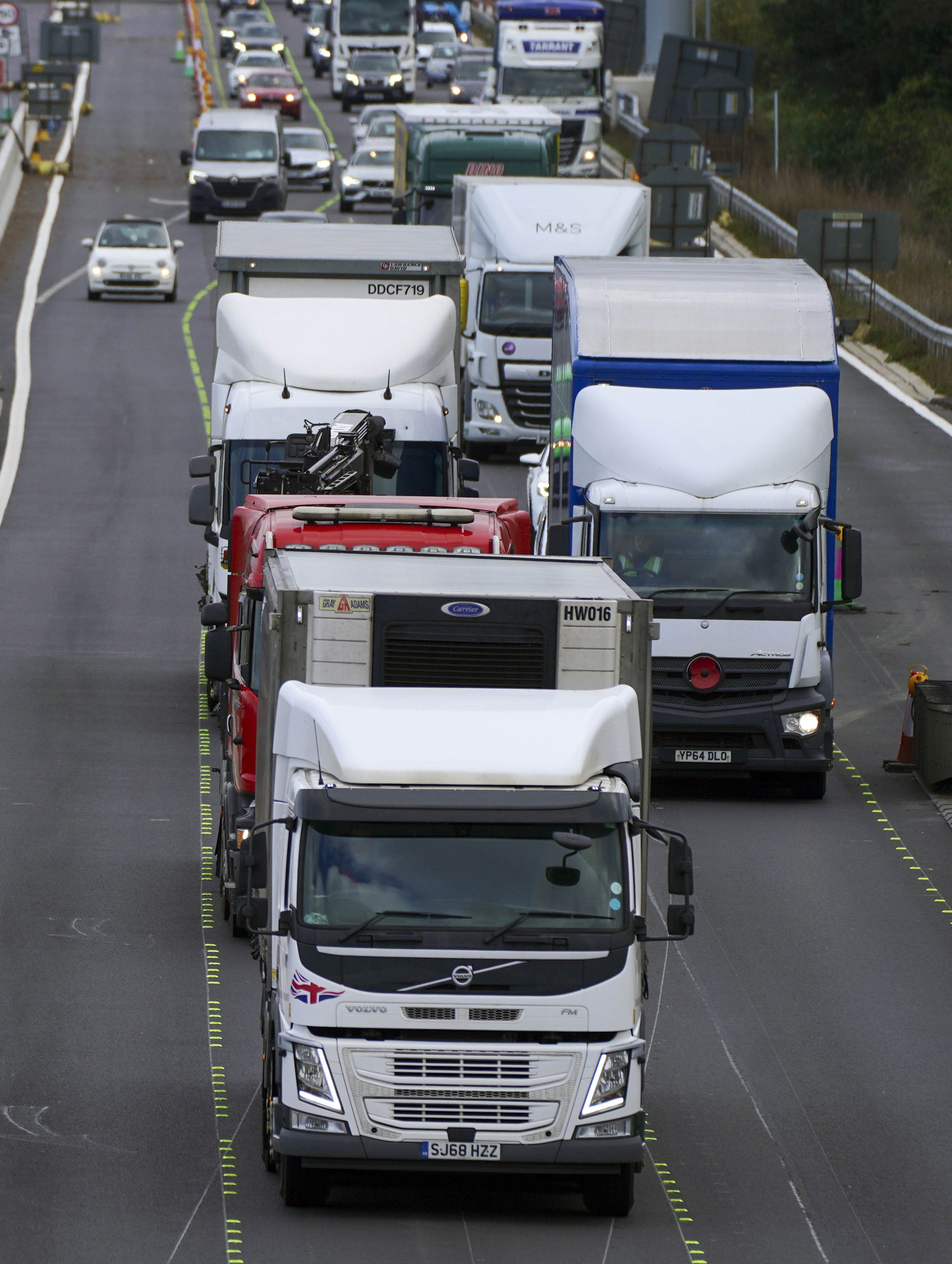Rising cost of fuel ‘putting strain’ on haulage industry
Seamus Leheny, from Logistics UK, told Stormont’s Infrastructure Committee there is no shortage of fuel on forecourts.

Your support helps us to tell the story
From reproductive rights to climate change to Big Tech, The Independent is on the ground when the story is developing. Whether it's investigating the financials of Elon Musk's pro-Trump PAC or producing our latest documentary, 'The A Word', which shines a light on the American women fighting for reproductive rights, we know how important it is to parse out the facts from the messaging.
At such a critical moment in US history, we need reporters on the ground. Your donation allows us to keep sending journalists to speak to both sides of the story.
The Independent is trusted by Americans across the entire political spectrum. And unlike many other quality news outlets, we choose not to lock Americans out of our reporting and analysis with paywalls. We believe quality journalism should be available to everyone, paid for by those who can afford it.
Your support makes all the difference.The rise in fuel prices is putting a real strain on the freight and haulage industries, a Stormont committee has been told.
Seamus Leheny, from Logistics UK, told the Infrastructure Committee there is no shortage of fuel on forecourts, but added that there is some evidence of panic-buying following Russia’s invasion of Ukraine.
“Fuel prices is a real strain on the haulage sector,” he said.
I would stress that there is enough fuel in the supply chain
“A barrel of crude oil has risen 34% since the Ukraine/Russia conflict. Since the start of the year the rate increase in a barrel of oil has been 56%.
“I would stress there is no shortage of fuel in the forecourts here.
“What we are seeing is there are some people who are going to garages and there is a lack of diesel. That is simply because people are starting a little bit of panic-buying, they are putting more into the tank because they are seeing the prices increasing almost on a daily level.
“That is simply a supply chain issue, it is about getting enough oil from the terminals, but I would stress that there is enough fuel in the supply chain to keep everyone and all operators there and we would just ask that people remain calm and sensible.”
Committee chairman Jonathan Buckley asked what a long-term war in Europe would mean for the haulage industry in terms of costs.
Mr Leheny said: “At the moment there is no exact forecast because it is still early days, but there will be pressures.
“There is enough fuel in the system, but what we are facing at the moment is more a shock to the system – consumers are filling their tanks up in desperation and panic.
“What we are looking at is supply chains. Probably about 40% of the iron ore that we use in the UK for manufacturing comes from Ukraine.
“We are going to have to re-source about half of the iron ore that we use for manufacturing and we have a heavy manufacturing industry here in Northern Ireland which relies on iron and steel.
“That is going to be a problem for us with cost increases for alternative sources.
“The longer this goes on, it is the lack of stability in the market, there is a shock to the system that may impact longer term on fuel prices and availability.
“Russia is not one of our larger suppliers of fuel, but it is an unknown.”
In Northern Ireland we estimate there is a shortage of between 1,500 and 2,500 drivers in the industry
Mr Leheny also raised concerns about labour shortages in the industry.
He said: “In the UK there has been a decrease of about 44,000 HGV drivers.
“In Northern Ireland we estimate there is a shortage of between 1,500 and 2,500 drivers in the industry.
“It is an ageing workforce. The average age of HGC drivers is 51. Drivers under the age of 35 account for just 17% of drivers.
“There is a struggle in getting younger drivers.”